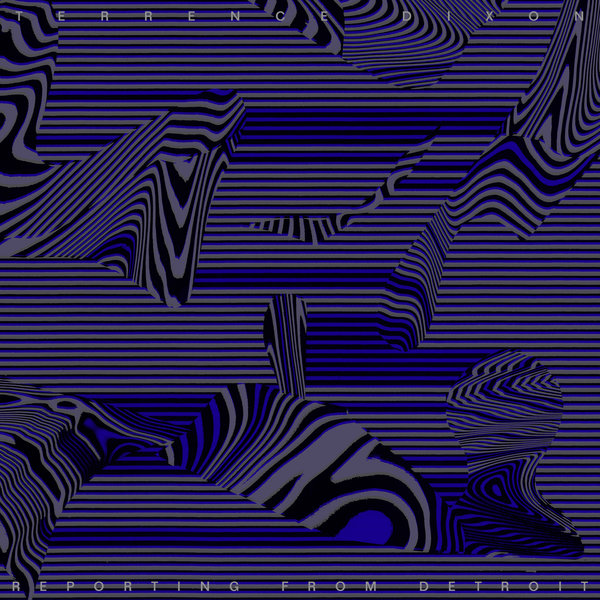Image: Rush Hour
Detroit is arguably one of the most significant cities in the history of electronic music. It marks the birthplace of what has become known as ‘Detroit techno,’ one of the last stylistic inventions of African-American dance music in the 1980’s and one of the most influential sounds in electronic music as we know it today. Mostly formulated by Black producers working in basements, this techno was influenced by European electropop in the vein of Kraftwerk and Tangerine Dream and arose as a reaction to the dominant style of the time; house music. Beyond this initial influence, the style largely evolved independently of what was known as techno in Europe, and by fusing the cold, repetitive pulse of European electropop with the soul of Chicago house, Detroit techno became characterized by its overt futurism, arising as an essential commentary on Black American identity.
When beginning to understand prolific Detroit producer Terrence Dixon’s latest LP, Reporting From Detroit, this history is essential. Released via Rush Hour, the album is not only a love letter to the genre, but also the continuation of its evolution as informed by Dixon’s particular point of view. Dixon’s sonic language has always marked a natural continuation for the style; his sound is always in conversation with the past but distinctly his own, interpreting the characteristics of the genre by way of his lived experience. The result is an evolution of Detroit techno towards something more minimal, but still steeped in the futurism of its original form. In fact, it’s Dixon’s minimalist approach that feels the most future-forward on Reporting From Detroit, with the music so full of space that it allows each of its ideas to flourish and dissipate naturally.
On 7 Mile All Night is most telling of this approach, composed of a scattering modular synth arpeggio over a simple four on the floor kick. In fact, most songs on the collection follow this formula. Tracks like Music Box and 8th Chance are largely exercises in loopwork, and this gives much of the music on Reporting From Detroit a reflective quality that triggers a sort of inward pondering. Star Garden for instance could be classified as a work of ambient electronica, and its repeated chime refrain dusted only with atmospheric effects and a barely there pulse places you firmly within your body as you listen to it unfold.
It’s barebones, and Dixon seems to focus on the core of Detroit techno through his insistence to work only with its most essential elements. This core is one that is unavoidably political, stemming from utopic imaginings of Black american culture and identity, and the ruminative nature of Reporting From Detroit lends itself to this modality. In its simplicity, Reporting From Detroit gestures toward complexity by alluding to the socio-cultural experience of Dixon’s Detroit. Dixon’s sonic interpretation of Detroit itself, a city that for its marginalized populace is inherently minimal, repurposes minimalism from a mode for Eurocentric austerity by employing it instead as a device for the exploration of oppression.
In this sense Dixon rightfully continues the lineage of the genre by emerging as one of its foremost architects, and Reporting From Detroit becomes a statement of intent for the artist and the future of this iconic sound. Listen to the opening track On 7 Mile All Night below, and download the album here.
Follow Terrence Dixon:
Facebook | Twitter | SoundCloud




